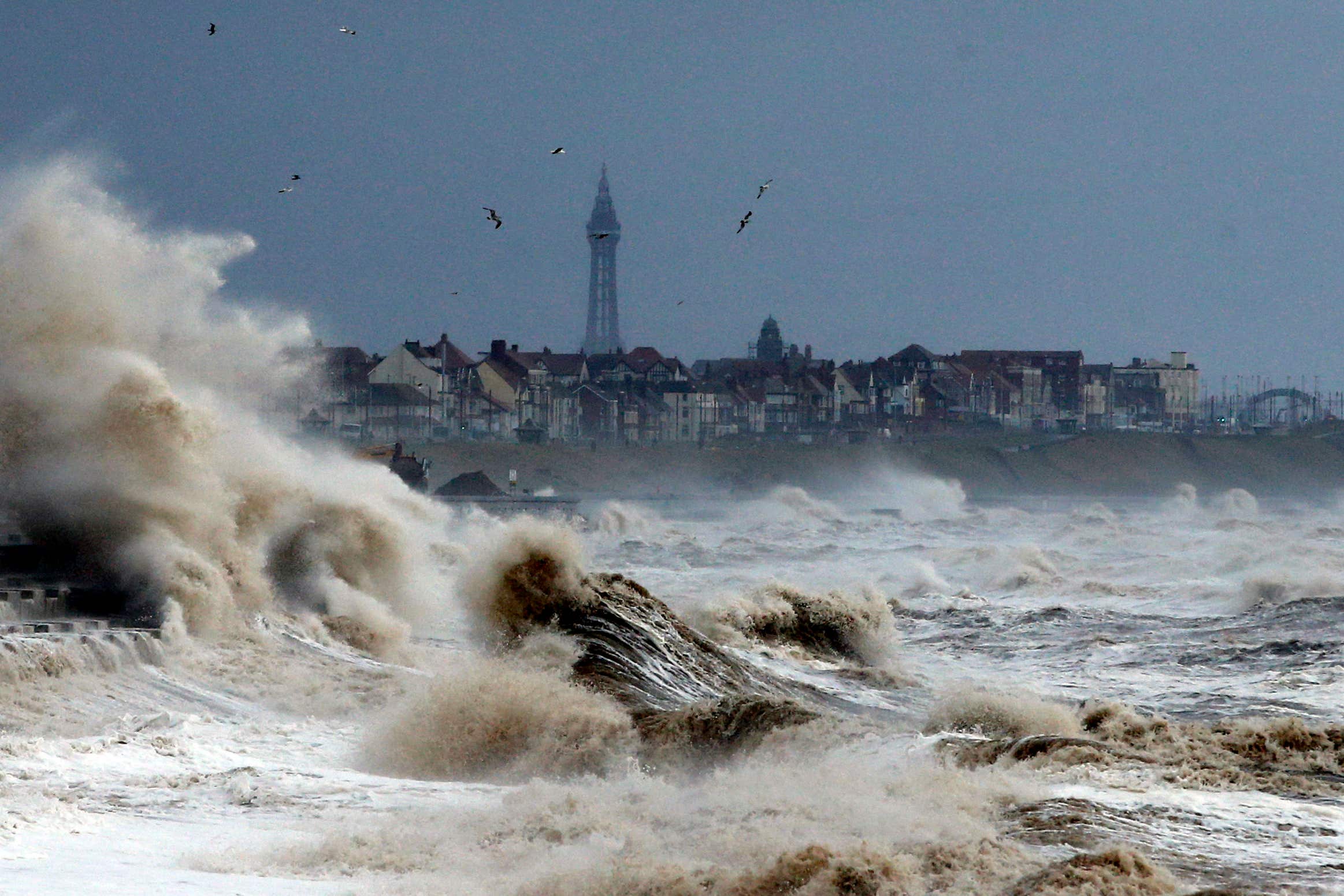Vital ocean currents regulating Earth’s climate ‘on course to a tipping point’
A breakdown of this system could potentially plunge the UK and large parts of the Northern Hemisphere into a new ice age.

A large and vital system of ocean currents that helps maintain the world’s climate may already be on course to a tipping point, according to scientists.
Known as the Atlantic Meridional Overturning Circulation (Amoc), this network of deep and surface currents help keep temperatures milder in the UK and Western Europe compared to other regions at similar latitudes – such as parts of eastern Canada as well as Siberia.
Scientists say a breakdown of this system could potentially plunge the UK and large parts of the Northern Hemisphere into a new ice age – an outcome that was dramatised in the 2004 Hollywood blockbuster The Day After Tomorrow.
It would also disrupt rainfall that billions rely on for agriculture, cause sea levels to rise in many parts of the world and lead to changes in weather patterns with significant impacts on ecosystems and human societies.
Dr Rene van Westen, a postdoctoral researcher in climate physics at Utrecht University in the Netherlands, said: “Cooler temperatures over Europe may seem positive, but the repercussions are far-reaching, with other regions experiencing accelerated warming and altered precipitation patterns.
“Additionally, a 100cm rise in European sea levels is projected due to the abrupt ocean circulation collapse.”
The Amoc plays a key role in regulating Earth’s climate by transporting heat from the Equator towards the Poles.
But as global temperatures rise due to warming, freshwater is pouring into the system from the melting ice from Antarctica, Greenland and other sources, risking disruption to the circulation patterns that drive the Amoc.
Once the Atlantic Ocean circulation collapses, the resulting climate impacts are nearly irreversible on human timescales
Dr Van Westen, along with a team of researchers at Utrecht University, designed a simulation where they gradually introduced surface freshwater over the course of 2,200 model years.
The findings, published in the journal Science Advances, showed a gradual decline of the Amoc over 1700 model years, followed by an abrupt tipping event beginning around the year 1758 and lasting for about a century.
Simulations showed that during this time, the European climate cooled by about 1C per decade, with regions experiencing over 3C cooling per decade.
The researchers said that comparing these figures to the current global warming rate of 0.2C per decade underscores the devastating impact an Amoc tipping event could have on the planet.
Dr Van Westen said: “Once the Atlantic Ocean circulation collapses, the resulting climate impacts are nearly irreversible on human timescales, as our earlier research has shown.
“Staying clear of this tipping point is imperative for avoiding devastating consequences on climate, society, and the environment.”
The researchers said that while current observational records are too short to make a reliable estimation, there are early warning indicators suggesting “we are moving in the direction of the tipping point”.
The team also said it also found a new way to detect an early warning signal for the collapse of the Amoc – a minimum of freshwater transport occurring at 34 degrees south of the Equator in the Atlantic.
Commenting on the study, Professor Tim Lenton, director of the Global Systems Institute at University of Exeter, said: “The research makes a convincing case that the Amoc is approaching a tipping point based on a robust, physically-based early warning indicator.
“What it cannot – and does not – say is how close the tipping point, because as it shows that there is insufficient data to make a statistically reliable estimate of that.
“We have to plan for the worst.
“We should invest in collecting relevant data and improving estimation of how close a tipping point is, improving assessment of what its impacts would be, and getting pre-prepared for how we could best manage and adapt to those impacts if they start to unfold.”
Professor Jon Robson, research fellow at the University of Reading’s National Centre for Atmospheric Science, said that although climate models can simulate such abrupt Amoc weakening events, it is important to keep in mind that the current study is based on only one imperfect climate model.
He said: “We need to see if this freshwater diagnostic is really a robust early warning indicator of abrupt Amoc changes.”
Subscribe to Independent Premium to bookmark this article
Want to bookmark your favourite articles and stories to read or reference later? Start your Independent Premium subscription today.
